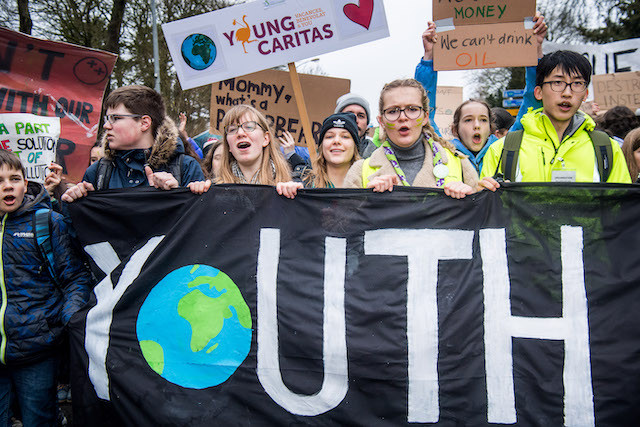The 8 to 21-year-old plaintiffs from Portugal lodged their complaint in September, after a series of devastating heatwaves and wildfires in the regions where they live. “The Applicants are currently exposed to a risk of harm from climate change, in particular from increased heat and its associated consequences,” documents filed with the human rights court say.
The case argues that the EU’s 27 member countries as well as Norway, Switzerland, Russia, Turkey, the UK and Ukraine are violating the children and young adults' human rights by contributing heavily to the climate crisis.
The plaintiffs suffer from respiratory conditions, anxiety, stress and difficulty sleeping, the case files say. In addition, they were unable to attend school or go outdoors during the worst of the heatwaves and fires.
The European Court of Human Rights (ECtHR) on 30 November gave the crowd-funded case--supported by the Global Legal Action Network--the go-ahead, obliging the 33 countries to respond to the complaint by February 2021. The court also granted the case priority status.
Should the countries in the case fail to convince the Strasbourg court they are doing enough to address climate change and protect the children and young adults, it could order them to step up emissions reductions.
Delano has contacted Luxembourg’s justice and environment ministries for comment.
Emission targets
Luxembourg is in the process of enshrining its climate targets into law and the government in 2020 adopted a national energy and climate plan, as mandated by the European Commission.
It plans on reducing carbon emissions by 55% in the next decade as well as increasing the share of renewable energies to 25% by 2030. It wants to be climate neutral by mid-century, has adopted a zero-waste strategy and plans a five-fold increase of organic farming.
But the Organisation for Economic Development and Co-Operation (OECD) in November warned the country must “redouble its efforts” to actually meet those targets. CO2 emissions in Luxembourg increased by 2% in 2019, according to Eurostat data. Before lockdown, the grand duchy was on track to miss its emission targets for this year.
The Paris Equity Check-- that assesses the impact of countries’ Paris Agreement pledges--concludes that under Luxembourg’s current goals, the Earth would warm by 3.8°C by 2100. This is well above the 2°C limit pledged in the Paris Agreement and the 1.5°C upper limit urged by the UN.
Climate litigation
The case at the ECtHR follows legal action taken by a group of plaintiffs from the EU, Kenya and Fiji against the European institutions. They argue the EU’s 2030 climate target of reducing domestic greenhouse gas emissions by at least 40% compared to 1990 levels is “not sufficient to protect lives, livelihoods and fundamental rights from the impacts of climate change.”
The European General Court dismissed the so-called People’s Climate Case, but the group filed an appeal with the European Court of Justice in July 2019.
A total of 1,587 climate litigation cases were brought forward between 1986 and May 2020, according to research by the Grantham Research Institute on Climate Change and the Environment at the London School of Economics.
But the study also says that “questions about whether the outcomes of these cases actually help to address climate change in a meaningful way remain unanswered.”
The Luxembourg branch of environmental organisation Greenpeace in 2019 took social security minister Romain Schneider to court for his ministry’s failure to respond to questions over the climate risks linked to the country’s public pension fund.
The court decided that Schneider should have responded to Greenpeace’s letter but also that he could not be blamed for not possessing the information demanded by the activists. The pension fund has since pledged an environmental review. The document was slated for 2020 but has so far not been published.
Lawmakers on Thursday afternoon will debate the fund’s investment strategies as well as that of another sovereign fund, the so-called “Fonds souverain intergénérationnel du Luxembourg”.
